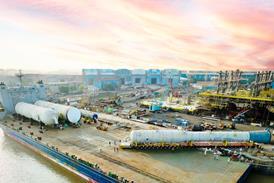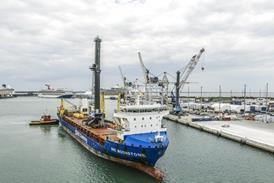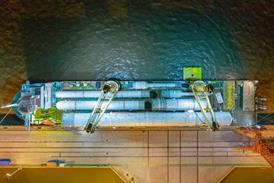The EU has given the green light to Germany’s state support for infrastructure development at the port of Cuxhaven. Moreover, trade union Verdi recommends that its port worker members accept the latest labour agreement tabled.
The port of Cuxhaven handles around 80 percent of all rotor blades installed in Germany. HLPFI reported in June that the German government would finance an expansion of the offshore terminal, including four new berths, together with the state of Lower Saxony and the private sector. The estimated construction costs are EUR300 million (USD325 million).
Lower Saxony earmarked EUR100 million (USD108 million) for the development, while the private port industry would contribute EUR100 million through concession fees. The federal government committed to the remaining EUR100 million; the EU has now given the green light to the state support for Niedersachsen Ports.
The project aims to strengthen Cuxhaven as an offshore industrial hub by improving infrastructure for the turnover of heavy-duty load, in particular wind farm components. The measure will also help Germany reach its renewable energy targets while increasing energy supply security.
Moreover, there could be an end in sight to industrial action at the country’s ports. Five rounds of pay negotiations had failed and various ports had fallen afoul of strikes and stoppages. German union Verdi said that it had reached a labour agreement for more than 11,500 port employees and the deal is now being proposed to members. A decision is scheduled for September 27.
The latest deal would be valid until July 31, 2025. Employees would receive a tax and duty-free inflation compensation premium of EUR1,700 (USD1,877) paid out in October; part-time employees would also receive the full premium. From October 1, 2024, hourly wages will be increased by EUR1.15 (USD1.27). In addition, shift allowances and allowances for work on Sundays and public holidays would be significantly increased and holiday pay would increase to EUR430 (USD474.82) from next year.










